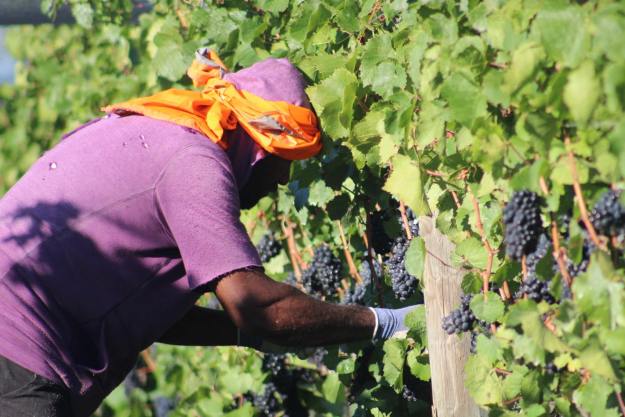Supporting stranded seasonal workers
Supporting stranded seasonal workers

Recognised Seasonal Employers (RSE) and migrant seasonal workers stranded in New Zealand will be able to continue working and supporting themselves with more flexible hours and roles.
Each year up to 14,400 workers, mainly from Pacific Island nations, arrive in New Zealand to fill seasonal labour shortages in the horticulture and viticulture industries.
Immigration Minister Hon Iain Lees-Galloway says around 9,000 seasonal workers are still in New Zealand, a number of those stranded with no flights home and no way to support themselves after the harvest season has ended.
“The New Zealand Government is supporting Pacific Island governments to repatriate their citizens, but many are expected to remain in New Zealand for some time,” Minister Lees-Galloway says.
Time-limited visa changes are:
- Stranded RSE workers will be able to work part-time (a minimum of 15 hours per week) and with no limit on roles they can do.
- The workers will need to have an employment agreement with an RSE employer, who will need to continue to honour commitments under the RSE scheme.
- Any additional time an RSE worker spends in New Zealand will not count towards the time they would ordinarily have to spend overseas before they can return for seasonal work.
The RSE visas limit workers to specific work, which is now drying up despite the Government already supporting workers to move to new RSE employers unable to bring in migrant workers as the borders are closed, the Minister adds.
“The RSE scheme is part of our special relationship with the Pacific.
“As a country, we have a responsibility to support these workers and their employers, whose pastoral care responsibilities include accommodation for the workers.”
The Minister says the responsibility remains with RSE employers to comply with employment law and pastoral care requirements.
New Zealand is facing a rise in unemployment and expecting more New Zealanders to be available for work next season.
“For this reason, the Government has decided to keep the RSE scheme annual cap at 14,400 for the next year,” Minister Lees-Galloway adds.
“This is not what we originally announced and planned but we anticipate more New Zealanders will be available to do this work next year so we could not justify another increase of the cap as we originally planned.
“I want to give employers in the horticulture and viticulture industries as much certainty as possible in uncertain times, so I have taken the decision now even though next seasons workers will only be able to enter New Zealand when it is safe to relax border restrictions.”
Visit HERE for Immigration New Zealand updates.
